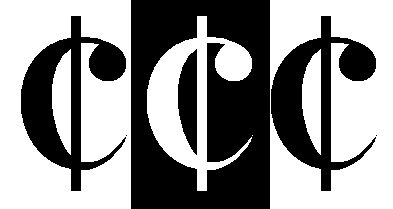When an ensemble as renowned and applauded as the Kungsbacka Piano Trio arrives in town it is reasonable to anticipate an evening of high quality and enjoyable music–making. This was certainly the experience of the audience at the Chichester Chamber Concerts recital in the Assembly Room last Thursday evening. Moreover, the Trio came with an enthralling programme which admirably suited their considerable talents. Each half of the programme contained one of the major works of the piano trio repertoire preceded by a shorter work of much greater rarity.
The lesser-–known work that opened the concert was Lili Boulanger’s D’un soir triste dating from 1918. Lili was the younger sister of the much more famous Nadia Boulanger, but it was Lili who in 1913 won the Paris Conservatoire’s coveted Prix de Rome, rather than her sister; the first woman to do so in the 115 year history of the competition. (The girls’ father, Ernest, had won the prize in 1835.) Sadly, Lili was crippled with Crone’s Disease. D’un soir triste was the last work she was able to complete in her own hand. As it progressed, the handwriting on the manuscript grew weaker and weaker. One final work, a Pie Jesu, was dictated to Nadia before Lili died on 15 March 1918, at just 24 years of age. D’un soir triste, lasting some 12 minutes, begins with percussive chords from the piano over which the cello eventually plays a soulful melody before the violin enters and takes up the tune. The music rises to a crescendo with some anguished chords on the piano before dying away to a peaceful conclusion. By the time she wrote this Lili knew that she had not long to live, but the music is of resignation rather than tragedy, in some parts uplifting, and it received a most sympathetic and moving performance from the Kungsbacka Trio.
This was followed by Ravel’s Piano Trio in A minor, one of the gems of piano trio literature. Finished in a hurry at the outbreak of World War l so that Ravel could rush off to enlist (although he was rejected from military service on account of his physical frailty) the trio is a work of enormous strength, technically demanding of the players who, in this instance, gave it a passionate and thoroughly convincing performance. Almost orchestral in nature, the Ravel piano trio – the only one he wrote – is one of the genuine twentieth century masterpieces for this combination of instruments.
The second half of the programme opened with the second rarity – Arvo Pӓrt’s Mozart–Adagio. This short work was written in 1992 in memory of Oleg Kagan, a friend of Arvo Pӓrt, and a prominent Russian violinist, who was a well–known interpreter of Mozart’s music. The composer takes the Adagio from Mozart’s Piano Sonata in F major K280 and uses the strings to probe the dissonances and shadows of Mozart’s work. The string writing is spare. Each note is exposed and often, as in the introduction and coda, framed in silence – the silences as eloquent as the played notes. The result is a hauntingly beautiful piece which was most movingly presented in this performance.
The final work in the programme was Schubert’s sublime Piano Trio No.1 in B flat D898. Written in the summer or early autumn of 1827 it is a work of ravishing beauty. It was followed in November by the Trio No.2 in E flat. Robert Schumann wrote: "One glance at them [the two Piano Trios] and the troubles of our human existence disappear and all the world is fresh and bright again". Yet these trios were written at a time when Schubert was experiencing rapidly failing health and erratic mood swings. He died the following year. The composer only heard the Piano Trio No.1 once, in a private subscription concert, and never in public and it was not until 8 years after his death that the Trio was finally published. Produced in a final flurry of composition which included Winterreise, the "Great" C minor symphony and the String Quintet amongst other major pieces, the Trio is a radiant and life–affirming piece. The Kungsbacka Trio gave us a performance of great subtlety, freshness and eloquence.
This was a superb programme played with great skill and panache but also evident enjoyment which was shared by the enthusiastic capacity audience. It was a fitting end to the Chichester Chamber Concerts season.
